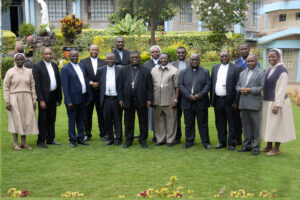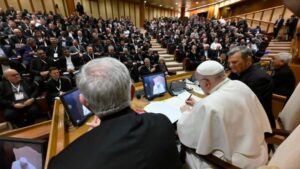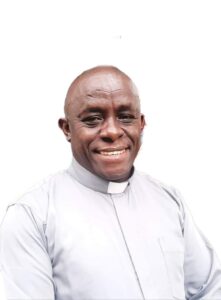ZAMBIA: Catholic Bishops in Eastern Africa Bemoan Increased Climate Change Effects

Mwenya Mukuka
Catholic Bishops in the east African region grouping called Association of Member Episcopal Conferences of Eastern Africa (AMECEA) say the increase in extreme weather events such as droughts, floods, and cyclones, combined with rising sea levels, are causing enormous damage to our infrastructure, agriculture, and natural resources.
The Catholic bishops from Zambia, Malawi, Uganda, Kenya, Ethiopia, Sudan, South Sudan, Tanzania and Eretria have added that the development is leading to shrinking financial resources.
AMECEA president Rt. Rev. Charles Kasonde who is bishop of the Catholic Diocese of Solwezi said governments in Africa are now borrowing more to address the people’s immediate needs.
“This is forcing African governments to borrow more money to address the immediate needs of their populations such as providing food, shelter, and medical care in the aftermath of natural disasters,” Bishop Kasonde said.
Making reference to Pope Francis’ Encyclical, Fratelli Tutti, in which he calls for a renewed sense of global solidarity and highlights the need to address climate change as a shared responsibility, Bishop Kasonde said in this spirit, AMECEA bishops call upon the G7, G20, the International Monetary Fund (IMF) and the World Bank to increase concessional financing for climate action and urgent liquidity needs in African countries.
Bishop Kasonde added that rich countries can use their excess Special Drawing Rights (SDRs) and other financial resources to help poorer nations combat the impacts of climate change without leaving them indebted which he said is doable and the time to act is now.
Bishop Kasonde added that climate change is an existential threat to planet Earth, and it is already having devastating effects on Africa with climate-vulnerable countries on the continent bearing the brunt of climate change even though they did not contribute as much as the industrialized countries have.
The President of AMECEA also said that many African countries are burdened with heavy debts, which limit their capacity to respond to the harsh impacts of climate change and to invest in renewable energy and other climate-friendly initiatives.
He added that debt repayment often takes priority over environmental conservation, leading to deforestation and other environmentally damaging practices.
“Many African countries are burdened with heavy debts, which limit their capacity to respond to the harsh impacts of climate change and to invest in renewable energy and other climate-friendly initiatives. Additionally, debt repayment often takes priority over environmental conservation, leading to deforestation and other environmentally damaging practices. As a result, tackling the debt crisis is crucial for African countries to effectively address the challenge of climate change and achieve sustainable development,” he said.
“Additionally, debt repayment often takes priority over environmental conservation, leading to deforestation and other environmentally damaging practices. As a result, tackling the debt crisis is crucial for African countries to effectively address the challenge of climate change and achieve sustainable development,” bishop Kasonde added.
Bishop Kasonde however noted that to tackle the current debt crisis affecting Africa it is important to pay attention to private debt.
He said debt crisis cannot be resolved without protection from private creditor litigation for debtor countries.
“Private creditors hold 60% of debt. Passing legislation in the main debt contract jurisdictions is urgent. These are primarily G 7 jurisdictions. In New York, I urge support for the Hoylman-Sigal / Fahy NY Taxpayer and International Debt Crises Protection Act, which will secure private creditor participation in debt relief agreements. We are encouraged to see similar efforts our partners in other G7 countries are pushing,” bishop said.
Bishop Charles Kasonde said this on how religious and community leaders from around the world are working for a Jubilee at a vigil and press conference on the occasion of the International Monitory Fund (IMF), World Bank and G20 Meetings in Washington.
On April 10th – April 16th, world leaders gathered in Washington, DC for the G20, IMF and World Bank Spring Meetings where they have made consequential decisions affecting billions of people and planet earth.


